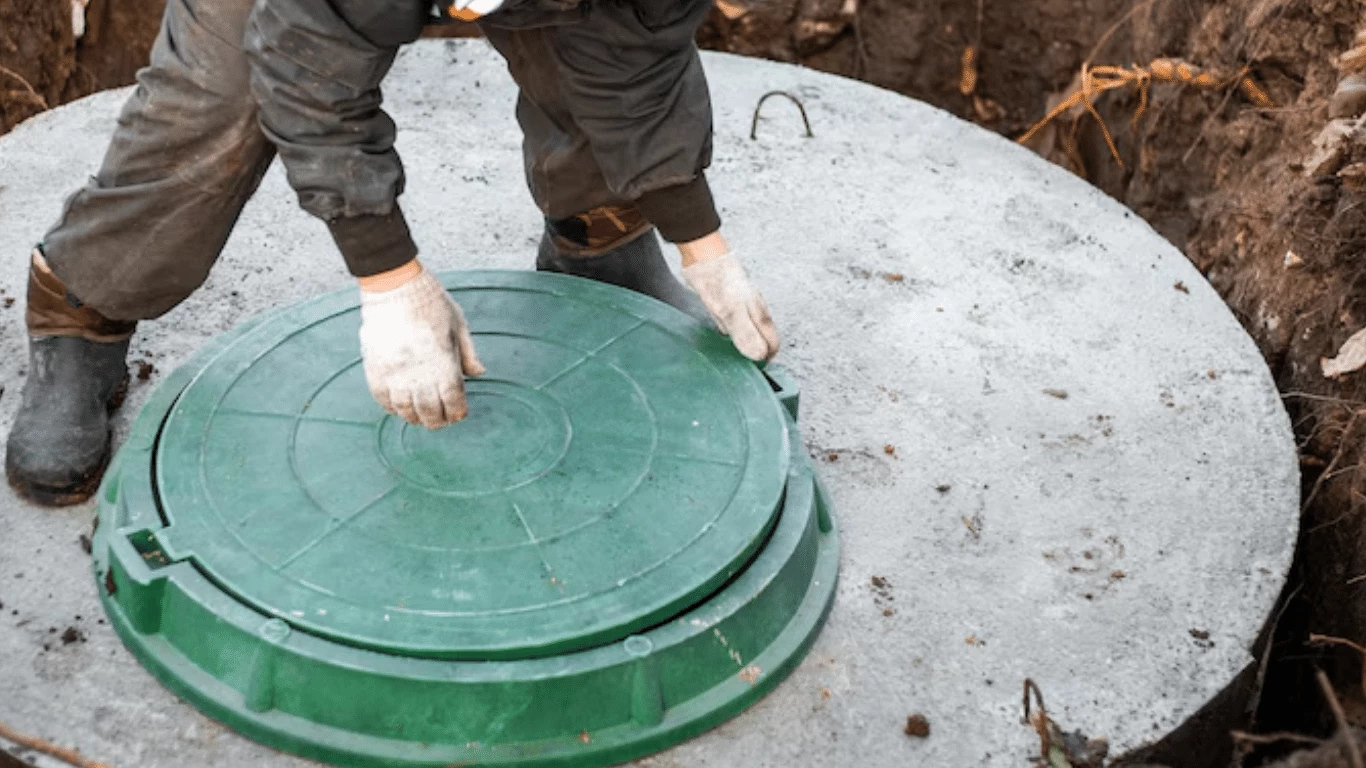Your well is more than just a source of water—it’s essential to your family’s health and well-being. But without the right protection, wells can become vulnerable to chemical contamination from everyday sources like fertilizers, pesticides, and household cleaners. That’s where well covers come in. These covers act as the first line of defense, preventing harmful substances from entering the water supply and ensuring your water stays safe to drink.
Whether you rely on a private well for daily use or backup, investing in a sturdy, properly fitted well cover is a simple yet effective way to safeguard your water. In this article, we’ll explore how well covers work to block contaminants, highlight the risks of exposure, and explain why regular maintenance is essential. Let’s dive into why this small protective step can make a big difference for your well water.
How do well covers help protect wells from chemical contamination?
Well, covers are essential for protecting wells from chemical contamination in several important ways:
- Barrier Against Surface Contaminants: Well covers create a physical barrier that prevents surface water, debris, and contaminants from entering the well. This is especially crucial during heavy rain or flooding when runoff can carry fertilizers, pesticides, and other chemicals into the water supply.
- Prevention of Animal Intrusion: Well covers help keep animals, such as rodents and insects, from accessing the well. These animals can introduce bacteria and other contaminants, compromising water quality.
- Minimizing Evaporation and Water Loss: A well cover reduces evaporation, helping maintain the well’s water level. This can be particularly important in times of drought, ensuring that the well remains functional and reducing the concentration of contaminants that may enter.
- Protection from Environmental Debris: Covers shield the well from falling debris, such as leaves, branches, and trash, which can decompose and introduce organic matter into the water supply, potentially leading to contamination.
- Reduced Chemical Exposure: In agricultural or industrial areas, chemicals used in farming or manufacturing can seep into the ground. A secure well cover helps minimize direct exposure to these chemicals, providing extra protection against potential contamination.
- Maintenance of Water Quality: By preventing unauthorized access and potential spills from entering the well, covers help ensure that the water remains clean and safe for consumption.
- Compliance with Regulations: Properly installed and maintained well covers often meet local health and safety regulations, ensuring the well system is protected and functioning within established guidelines.
Regular inspection and maintenance of well covers are not just crucial, but also a responsibility of the well owner. Ensuring their effectiveness in preventing chemical contamination is a proactive step towards safeguarding the health of individuals relying on the well for their water supply.
What types of well covers are best for preventing chemical exposure?
Several types of well covers are effective when it comes to preventing chemical exposure and contamination. Here are some of the best options:
- Concrete Well Covers: These are durable and provide a solid barrier against environmental contaminants. They are heavy enough to withstand harsh weather conditions and prevent unauthorized access, making them ideal for protecting wells in agricultural or industrial areas.
- Plastic or Composite Well Covers: Lightweight yet sturdy, plastic or composite covers resist rust and corrosion. They can be designed with locking mechanisms to prevent access and are available in various sizes and shapes to fit different well types.
- Steel Well Covers: Metal covers, particularly those made of stainless or galvanized steel, offer excellent durability and strength. They resist damage and can effectively protect against environmental pollutants and chemicals.
- Lockable Well Covers: Regardless of the material, choosing a well cover with a locking mechanism enhances security, preventing unauthorized access that could lead to contamination from chemicals or pollutants.
- Sealed Well Caps: These caps create an airtight seal over the wellhead, preventing surface runoff and debris from entering the well. They are especially effective in areas prone to flooding or heavy rainfall, which can carry contaminants.
- Ventilated Well Covers: In some cases, a ventilated cover can be beneficial, allowing for proper air circulation while still preventing contaminants from entering the well. This is important for maintaining water quality, especially in wells that might be affected by chemicals from nearby sources.
- Custom-Made Covers: For specific applications or unique well configurations, custom-made covers can be designed to fit precisely and provide maximum protection against chemical exposure.
When selecting a well cover, factors such as local environmental conditions, potential sources of contamination, and regulatory requirements must be considered to ensure that the cover effectively protects the well system. Regular inspection and maintenance of the cover are also crucial to maintaining its effectiveness over time.
Can a well cover prevent chemicals from entering groundwater?
A well cover can significantly prevent chemicals from entering groundwater, but its effectiveness largely depends on several factors, including the design, material, and installation quality. Here’s how a well cover can contribute to groundwater protection:
- Barrier Against Surface Contaminants: A properly installed well cover acts as a physical barrier that prevents surface water, which may contain chemicals (such as fertilizers, pesticides, or industrial runoff), from directly entering the well. This helps to reduce the risk of contamination of the groundwater supply.
- Minimizing Runoff Infiltration: During heavy rain or flooding, well covers can prevent surface runoff, which often carries pollutants, from infiltrating the well. This is particularly crucial in areas with prevalent agricultural practices or industrial activities.
- Preventing Debris Accumulation: By keeping out debris such as leaves, dirt, and organic matter, a well cover can help maintain the integrity of the well water and prevent the introduction of potential contaminants that could leach into the groundwater.
- Deter Animal Access: Well covers can also keep animals away from the well. Animals can introduce pathogens or other contaminants that may impact groundwater quality.
- Sealing Capability: Well covers that provide a tight seal can effectively minimize the risk of contaminants entering the well. Some covers are designed to be airtight, which helps prevent chemical exposure from surrounding soil and surface water.
- Regulatory Compliance: Using appropriate well covers can help ensure compliance with local regulations regarding well construction and contamination prevention, further protecting groundwater resources.
However, it’s important to note that while well covers can significantly reduce the risk of contamination, they cannot eliminate the possibility. Groundwater can still be affected by factors such as:
- Improperly Installed Covers: If a cover is poorly installed or damaged, it may not effectively prevent contaminants from entering.
- Direct Contamination: Chemicals can still enter the groundwater through other means, such as direct spills, leaking underground storage tanks, or contaminated soil near the well.
- Groundwater Movement: Chemicals can migrate through soil and groundwater over distances, potentially affecting wells not directly adjacent to contamination sources.
While well covers are essential to a good protection strategy and can significantly help prevent chemicals from entering groundwater, they should be part of a comprehensive approach that includes regular testing, maintenance, and responsible land-use practices to safeguard water quality.
Are well covers necessary for safeguarding wells from chemical spills?
Well, covers are necessary to safeguard wells from chemical spills and other potential contaminants. Here are several reasons why well covers are important in this context:
- Physical Barrier: Well covers provide a physical barrier that helps prevent surface contaminants, including chemicals from spills, from entering the well. This is particularly important in areas near agricultural operations, industrial facilities, or transportation routes where spills are more likely to occur.
- Protection from Surface Runoff: During heavy rains or flooding, water can directly carry chemicals from nearby sources into the well. A properly designed and installed well cover helps minimize the risk of surface runoff infiltrating the well, reducing the likelihood of chemical contamination.
- Prevention of Debris Accumulation: Well covers help remove debris, such as leaves, soil, and organic matter, which can introduce harmful substances into the well. This is especially crucial if contaminants are present in the surrounding environment.
- Animal Deterrence: Covers help prevent animals from accessing the well, as they can introduce pathogens or chemicals that may impact water quality. This is particularly important in rural areas where livestock or wildlife roam freely.
- Regulatory Compliance: In many jurisdictions, proper well covers are required by law as part of well construction and maintenance regulations. Compliance with these regulations is essential for safeguarding the well and surrounding groundwater resources.
- Maintenance of Water Quality: By preventing chemical spills and surface contaminants from entering the well, covers help maintain the overall quality and safety of the water supply for household use.
- Increased Longevity: Well covers can also protect the well infrastructure from environmental factors, such as erosion and UV exposure, which can prolong the lifespan of the well and its components.
While well covers are crucial for safeguarding wells from chemical spills, they should be part of a broader water protection strategy. Regular monitoring, proper installation, maintenance, and contamination testing are equally important in ensuring the well remains clean.
Protect Your Well: Secure It Today!
At Well Doctor LLC, we understand the vital role well covers play in safeguarding your water supply from chemical contamination. A secure well cover protects against harmful substances, debris, and pests, ensuring your well remains clean and safe. Our team of experts is dedicated to providing high-quality well covers that fit your specific needs and comply with safety regulations.
Don’t leave your water supply vulnerable to contamination—take proactive measures today! Contact Well Doctor LLC to learn more about our well-cover solutions and ensure your well is properly protected for years.

